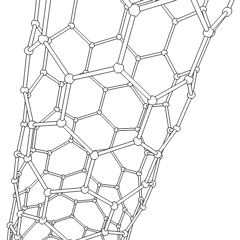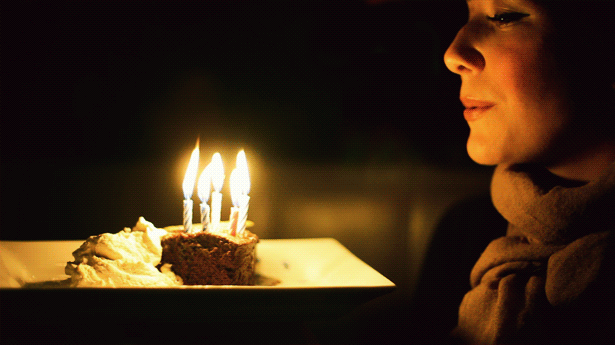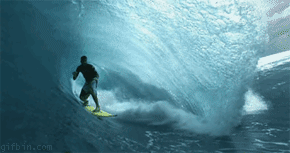The Master of Fine Arts in Visual
Arts
Master of Fine Arts in visual arts at FIX University is
the terminal degree within the studio art discipline. Our program offers
concentrations in the studio areas of drawing, painting, printmaking, ceramics,
photography and sculpture. The primary goal of the program is to provide
students with opportunities to develop a high degree of professional competence
in their chosen area of concentration. Interdisciplinary and collaborative
projects are encouraged within the department. The relatively small size of the
program encourages students to explore studio areas that will enhance their
major area of concentration. In addition, it creates a highly individualized
method of instruction. Our students may also take advantage of the opportunity
to spend a semesters of study on The FIX University Cultural Campus in Cali,
Columbia.
Having the department of art housed on Independent
Learning presents opportunities to interact with various other college
disciplines. The M.F.A. curriculum is composed of the following art history
and art seminar an in studio thesis. The thesis is primarily art studio in
preparation for a final exhibition with published documentation. Residencies are
available based upon artist performance and international
funding.
Courses
The MFA in Digital Production Arts degree requires live
projects, of which are devoted to Digital Production Studio, wherein the
student participates in production work; which are devoted to Graduate Research
Studio, where students may choose to continue work on an independent project, or
pursue a contractual production. The Core Courses, Aesthetics and Theory, from
the Master's Thesis, and all from Independent Aesthetics and Theory
courses.
Foundations
These courses are intended to address deficiencies in a
student’s background. They will be taken as directed upon examination of the
student’s portfolio and record of coursework. Students requiring more than two
foundations courses will be asked to make up any extra deficiencies before
admission.
Description:
The technical, conceptual, and algorithmic foundations of computer graphics. The
Unix operating system, scripting, C programming, and an interactive graphics
API. Prerequisite(s): Permission of the instructor. This course is not permitted
to computer science, computer engineering, or computer information systems
majors.
DPA 601: Technical Foundations of
Digital Production IIDescription: The mathematical
and algorithmic foundations of computer graphics. Spatial data structures,
object oriented programming in C++, mathematics for graphics, 3D graphics API.
Prerequisite(s): DPA 401 or permission of the instructor. This course is not
permitted to computer science, computer engineering, or computer information
systems majors.
DPA 602: Visual Foundations of Digital
Production I Description: Visual
foundations underlying computer graphics production. Perspective, observational
drawing, color and value, principles of composition and design, and
storyboarding. Incorporates the studio method, involving students in hands-on
work and the critique process, and stresses examples from the history of art,
animation, and film. Prerequisite(s): Permission of the instructor. Course is
not permitted to art or architecture
majors.
DPA 603: Visual Foundations of Digital
Production II Description: Extends the
foundation visual principles underlying computer graphics production, begun in
DPA 402. Stresses representation of the figure in drawing and the use of
cameras. Incorporates the studio method, and the critique process, and stresses
examples from the history of art, animation, and film. Prerequisite(s): DPA 402
or permission of the instructor. Course is not permitted to art or architecture
students.Core
The core courses provide a broad underlying artistic,
technical, and studio methods foundation for advanced study, leading to original
studio and research work. Although all courses are required, all will be chosen
towards the independent learning requirement. All students will complete the
following courses:
Artistic
Core
THEA 687: Stage Lighting
I
Theory and practice of stage
lighting through an understanding of various lighting instruments, lighting
control systems and execution of lighting
designs.
ART 821: Visual
Narrative Students develop visual
communication skills through the vernacular of cinema, and express concepts and
ideas in sequential narrative design.
Technical
Core
CP SC 604: Computer Graphics
Images
Theory and practice behind the
generation, and manipulation of two-dimensional digital images within a computer
graphics context. Image representation and storage, sampling and reconstruction,
color systems, affine and general warps, enhancement and morphology,
compositing, morphing, non-photorealistic transformations. Prerequisite(s): CPSC
212 and MTHSC 311, or DPA 401
CP SC 809: Rendering and
Shading The art and science of lighting
and shading for effective computer graphic imagery, including the mathematical,
physical, and perceptual elements contributing to the simulation of a desired
visual look. Shading languages, advanced rendering tools, global illumination
effects, production of photoreal and non photoreal imagery. Prerequisite(s): CP
SC 807
Studio Methods
Core
CP SC 807: 3D Modeling and
Animation
Foundation principles and
practice of modeling, animating, and rendering of 3D computer graphics scenes.
Students complete a series of projects using industry-standard software. Topics
include modeling techniques, technical animation, rigging, materials, lighting,
scripting, and post production.
CPSC 815: Special Effects
Compositing Video special effects,
compositing problems, effects animation, matchmoving and 3-D geometry, color and
texture reconstruction from 2-D images; extensive use of scripting languages and
high-end software platforms. Prerequisite(s): CP SC 605 or
807
Aesthetics & Theory
The aesthetics and theory electives provide an
introduction to the analysis and conceptual foundation of visual presentation.
Although only one course is required, an additional course may be chosen towards
the Open Electives requirement. The students will complete all of the following
courses:
AAH 630: Twentieth Century Art
I Acquaints students with the
major artists’ monuments and issues of the Modern period in art. Through
lecture/discussions and the reading of primary sources, course places the major
modern movements in the context of the period
(1860s–1945).
AAH 632: Twentieth Century Art
II Overview of trends in art and
architecture since World War II. Specific artists, artworks and movements are
presented in a socio/historic context with specific emphasis on the transition
from a late-modernist to a post-modern
perspective.
ENGL 650: Film
Genres Advanced study of films that
have similar subjects, themes and techniques, including such genres as the
Western, horror, gangster, science fiction, musical and/or screwball comedy.
Also considers nontraditional genres, screen irony, genre theory and historical
evolution of genres. Topics vary. Prerequisite(s): ENGL
357
ENGL 651: Film Theory and
CriticismAdvanced study into the theory
of film/ video making emphasizing understanding a variety of critical methods to
approach a film. Examines the history of film theory and defines the many
schools of film criticism, including realism, formalism, feminism, semiotics,
Marxism and expressionism. Prerequisite(s): ENGL
357
ENGL 853: Visual
Communication Understanding the language of
images used in textual and extratextual communication; theories of perception,
methods of visual persuasion, gender analysis, and cognitive and aesthetic
philosophies of visual rhetoric; technologies of visual communication; and
technologies of visual production.
PHIL 845:
Aesthetics Nature and value of aesthetic
experiences and objects. Attention is directed to the roles of and relationships
among objects, makers and audiences; interpretation, criticism and aesthetic
response; the contexts and languages of art; the nature of aesthetic value;
aesthetics in application; issues in public
policy.
Independent
Studies
The Independent Studies provide an opportunity for students to either develop a
special expertise, or broaden their background to sustain studio and thesis
work. Independent Studies are offered in the areas
listed below. An additional Core Course or an additional Aesthetics and Theory
practices may be used towards this requirement. The student’s thesis committee,
subject to review by the DPA Director, may approve other courses. All students
will complete all course work.
Artistic
Electives
ART 605: Advanced
Drawing
Advancedlevel studies of
drawing which explore the synthesis of refined drawing skills and philosophies
of art. Student’s understanding of drawing as a form of art is developed through
studio practice augmented by critiques, demonstrations, lectures, field trips
and independent research. Prerequisite(s): ART
305
ART 607: Advanced
PaintingAdvanced studio course in
painting. Study of contemporary painters and directions is included. Students
select painting media and are expected to develop a strong direction based on
prior painting experience. Prerequisite(s): ART
307
ART 609: Advanced
SculptureIntensive independent studio
concentration to further develop personal direction and content. Emphasis is on
continued investigation of sculptural context, materials and processes, and
relative historical research. Preq: ART 309 or consent of instructor.
Prerequisite(s): ART 309
ART 611: Advanced
PrintmakingCulmination of process,
techniques and individual development. Students are expected to have mastered
process and technique for the benefit of the image produced. Creativity and
self-expression are highly emphasized as students select a process for
concentrated study. Prerequisite(s): ART
311
ART 613: Advanced
PhotographyContinuation of ART 313.
Advanced problems in photography. Prerequisite(s): ART
313
ART 617: Advanced Ceramic
Arts Students are directed toward
further development of ideas and skills. Glaze calculation and firing processes
are incorporated to allow for a dynamic integration of form and ideas.
Prerequisite(s): ART 317
THEA 672:
ImprovisationPractical applications using
drama as a learning tool to strengthen writing skills, motivate collaboration
and heighten analytical skills. Students use improvisation to analyze texts and
to revise original work, consider theory and research of contemporary scholars
and develop approaches to literature and composition based on readings and drama
experiences. Preq: Senior standing or consent of
instructor.
MUSIC 680: Audio Engineering
II Advanced course in music
technology focused on music production integrating digital audio and virtual
instruments Prerequisite(s): MUSIC 380
THEA 697: Scene
PaintingPractical study of basic
painting techniques for the theatre including layout, proper use of materials,
painting styles and texturing techniques.
Technical
CP SC 605: Graphical
Systems
Computational, mathematical,
physical, and perceptual principles underlying the production of effective
three-dimensional computer graphics imagery. Prerequisite(s): CPSC 212 and MTHSC
311, or DPA 401
CP SC 611: Virtual
Reality Design and implementation of
software systems necessary to create virtual environments. Techniques for
achieving real-time, dynamic display of photorealistic, synthetic images are
discussed. Includes hands-on experience with electromagneticallytracked,
head-mounted displays and requires, as a final project, the design and
construction of a virtual environment. Prerequisite(s): CP SC
405
CP SC 614: Human and Computer
Interaction Survey of human and computer
interaction, its literature, history and techniques. Covers cognitive and social
models and limitations, hardware and software interface components, design
methods, support for design, and evaluation methods. Prerequisite(s): CP SC 212
and 215
CP SC 616: 2D Game Engine
Design Introduction to the tools and
techniques necessary to build 2-D games. Techniques draw from subject areas such
as software engineering, algorithms and artificial intelligence. Students employ
techniques such as sprite animation, parallax scrolling, sound, AI incorporated
into game sprites and the construction of a game shell. Prerequisite(s): CP SC
212 and 215
CPSC 619: Physically Based
Animation Physically-based modeling and
dynamic simulation techniques as used for the automatic description of motion
and geometry for animation and computer graphics. A variety of approaches are
explored, with a special emphasis on the use of particle-systems to represent
complex phenomena. Prerequisite(s): CPSC
405
CPSC 805: Advanced Computer
Graphics Advanced techniques used in
the artificial rendering of natural scenes; current practice in computer
graphics; full software implementation of each technique; extensive coding.
Prerequisite(s): CP SC 405.
CP SC 863: Multimedia Systems and
Applications Principles of multimedia
systems and applications; techniques in effectively representing, processing and
retrieving multimedia data such as sound and music, graphics, image and video;
operating system and network issues in supporting multimedia; advanced topics in
current multimedia research. Term project requires implementing some selected
components of a multimedia system.
Studio
Method
DPA 808: Advanced
Animation
The foundation principles of
the production of computer animation, from original concept development and
character design, through rigging of articulated figures, character animation
methods, and digital cinematography. Prerequisite(s): CPSC
807
DPA 819: Physically Based
Effects The use of physically-based
dynamic simulation techniques in the production of digital special effects. The
course will emphasize tools, techniques and pipeline. Laboratory assignments
will be done using both commercial software and student's custom code.
Prerequisite(s): CPSC 619 o
General
GC 801: Process Control in Color
Reproduction
Techniques and rationale for
procedures used in reproducing color originals for printed media. Topics include
color systems, measurement, reproduction characteristics, proofing systems,
process evaluation/analysis for offset, gravure, flexographic and screen
printing processes. Prerequisite(s): GC 644
PSYCH 823: Perception, Cognition, and
Technology Fundamentals of sensory and
perceptual processes focusing on human vision and audition. Emphasis is on
perceptual aspects of applications and communication in electronic and
traditional media. Topics include perception of speech, time, depth, color and
motion in natural and virtual environments, as well as psychophysics, attention,
eye movements and reading.
ECE 847: Digitial Image
Processing Review of fundamental
concepts, issues and algorithms in image processing. Includes image formation,
file formats, filters, edge detection, stereo, motion and color.
Prerequisite(s): ECE 467.
Studio &
Thesis
DPA 860: Digital Production
Studio
The digital production studio
provides the student with the opportunity to develop as accomplished visual
problem solvers in a team setting. As part of the studio experience, students
will complete 12 credits working on a team-oriented production project, in which
they will take a project from concept through a finished piece. This will give
them the experience of working on a goal-oriented artistic team. Students begin
their studio sequence taking the studio course for only one credit each semester
of their first year. This provides new students with a familiarization to the
team process workflow, while still allowing them to concentrate on coursework to
develop core skills and knowledge. After the end of their first two semesters,
they work on a team project, for two consecutive terms, either summer-fall or
fall-spring. The digital production studio will include regular class meetings,
under faculty supervision, providing the vehicle for planning, critique, and
presentation of ongoing project work. Although a large majority of a student’s
studio work will be undertaken outside of class, active participation in class
is crucial to a successful studio experience, and is
required.
DPA 880: Graduate Research
Studio The graduate research studio
provides the student with the opportunity to complete a major project or
projects, under the guidance of a faculty advisor, in a direction supporting
their personal goals and aspirations. All students will complete 6 credits of
research studio. Such work may be team oriented or individually oriented, and
may be of a technical or of an artistic
nature.
DPA 891: M.F.A.
Thesis The M.F.A. thesis course consists of a studio project,
undertaken with the guidance of the student’s advisor and thesis committee. The
thesis project is developed to a refined degree, articulated in the form of a
written document, and presented orally in a thesis defense. The project is
intended to elaborate and refine a theme that the student has begun to explore
in the elective coursework and the production and research
studio. 






